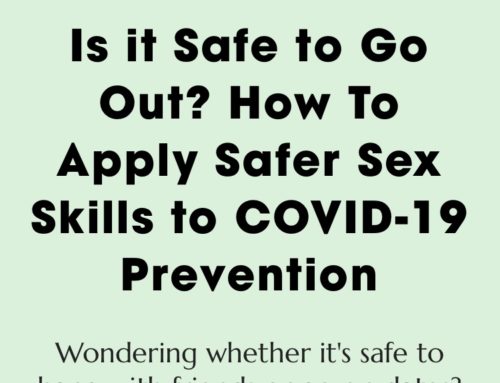
The V-Spot: How Do I Raise a Sex-Positive Kid?
Dear Yana,
My partner and I are people who were raised in households where sex was not discussed; indeed, in my house all questions and curiosity about sex were avoided and suppressed. As such, as adults and now parents of a young child, I feel we need support and tools to create a household where sex is discussed positively, consent is everything, and pleasure is emphasized.
Do you have tips about how to raise a strong sexually empowered daughter when the parents have the enthusiasm, but lack this foundation?
Thanks so much,
—Positively Parenting
Dear Parenting,
Having just been away on parental leave myself with my first-born, this is something I’ve been thinking about a lot lately — how do I raise a kid who is sex-positive and well-informed about important themes like consent, pleasure, and sexual safety, without being over-the-top, developmentally inappropriate, or, simply just laying it on too thick?
As you’ve experienced first hand, much of our society is terrified of offering minors info about sex (a national trend that has shoddy results for our youth’s sexual health, to say the least). However, even as very young children, we have bodies that can feel pleasure, our consent can be considered, and our boundaries can be respected. And as it turns out, all of these themes are important players in what might become a person’s healthy adult sex life. And, they are great places to start sex-positive education for young children.
First — teach your child the correct words for their sexual anatomy. My kid would end up very confused if we only called his nose his “nah-nah” or his mouth his “lil chompie chomper” or some other ridiculous euphemism so why WHY are people only calling my kid’s penis his “winkie,” “pee pee,” or “bits” (including the majority of the pediatric medical staff we’ve worked with)?! It’s a penis. Just like a hand is a hand and a belly button is a belly button, a penis is a body part. We are only contributing to sexual shame and silence if we fail to teach our children the correct words for all of their body parts.
Teach your child bodily autonomy and boundaries. This can happen in smaller ways, such as not forcing children to hug or kiss family members (yes, even you, parents) or important, preventative ways like teaching your child that certain body parts are not to be touched by adults outside of appropriate circumstances (like baths, diapers, or doctors visits).
Don’t confuse pleasure for sex. There are many ways we begin to explore pleasure in our bodies long before sex is even a word in our vocabulary. Help your child tune into what feels good to them — ask them what temperature they want their bathwater, ask them how they feel physically when they touch a soft blanket, eat a crunchy cookie, or dance in their favorite dress. Teach them how to ask for adjustments to feel good in their bodies (warmer/colder, more/less, no/yes).
Most children start exploring their own genitalia early because, like many other body parts, touching these particular body parts feels good. Many times, they pick an inopportune time to do this such as at the grocery store. Rather than shame them, teach your child boundaries about when a better time to enjoy this touch might be and where — such as in the privacy of their room.
When your child has questions about sex, answer them, in developmentally appropriate ways and at their level of understanding. When in doubt, keep it short and simple. Kids have all kinds of questions for us because we as parents help them understand the world — “What’s a bank account?” “Where you keep your money.” “How many eggs are in a dozen?” “Twelve.” “What’s masturbation?” “When you touch your own [insert correct anatomical terms] to feel good.” Adjust your responses based on how old your child is and how much unsupervised access they have to Google (for example, if your kid is asking about porn and knows their way around Google, they’ve likely seen it already).
Generally speaking, when raising a sex-positive kid, keep the shame low, the conversation honest and appropriate, and the information accurate. For more reading on this extensive topic, check out previous V-Spot column “Help Me Teach My Kid About Consent” or the numerous great articles by Elle Stanger on sex-positive parenting.
Yana Tallon-Hicks is a relationship therapist, sex educator, and writer living in the Pioneer Valley. You can find her work and her professional contact information on her website, yanatallonhicks.com.


